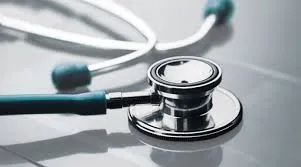
WHO Medical Product Alert N°5/2025: Identification of Substandard (Contaminated) Oral Liquid Medicines in the South-East Asia Region
The World Health Organization (WHO) has issued Medical Product Alert N°5/2025 concerning the identification of substandard, contaminated oral liquid medicines in India, which were reported to WHO on 8 October 2025. This alert highlights significant public health concerns regarding three specific oral liquid medications that have been found to contain the toxic chemical Diethylene Glycol (DEG), a substance known to cause serious illness and death when ingested by humans.
Background and Context
These contaminated products contain active ingredients commonly used to alleviate symptoms associated with the common cold, influenza, and cough. The alert was triggered following reports from the Central Drugs Standard Control Organization (CDSCO) of India regarding localized clusters of acute illness and child fatalities in the country, first identified by WHO on 30 September 2025. Investigations revealed that the affected children had reportedly consumed the contaminated oral liquid medicines prior to developing severe symptoms.
Affected Products and Manufacturers
The contaminated oral liquid medicines have been traced to specific batches of the following products:
- COLDRIF, manufactured by Sresan Pharmaceutical
- Respifresh TR, manufactured by Rednex Pharmaceuticals
- ReLife, manufactured by Shape Pharma
CDSCO has confirmed that state regulatory authorities have taken immediate action to halt production at the implicated manufacturing sites and have suspended product authorizations. Furthermore, a formal recall of the contaminated batches has been initiated to prevent further distribution and consumption.
According to CDSCO, there is no current evidence to suggest that these contaminated products have been exported from India. WHO nonetheless advises National Regulatory Authorities (NRAs) in other countries to maintain heightened vigilance and consider targeted market surveillance. Special attention should be paid to informal and unregulated supply chains, which may facilitate the circulation of unsafe products without detection. Authorities are also encouraged to evaluate the risk profile of any oral liquid medicines originating from the same manufacturing facilities, particularly those produced from December 2024 onward.
WHO Response and Collaboration
WHO is actively collaborating with Indian health authorities to monitor the situation, identify the source of contamination, and implement strategies to mitigate public health risks. The contaminated products in question are classified as substandard because they fail to meet required quality standards and specifications. Their consumption, especially among children, presents a critical risk of severe adverse effects and potentially fatal outcomes.
Health Risks Associated with Diethylene Glycol Contamination
Diethylene Glycol (DEG) is a highly toxic chemical, and even small amounts can result in serious illness or death if ingested. Exposure to contaminated oral liquid medicines can lead to a range of toxic effects, including:
- Abdominal pain
- Vomiting and diarrhoea
- Inability to pass urine
- Headache and altered mental status
- Acute kidney injury, which can progress to organ failure and death
Given the severity of these risks, it is imperative that contaminated products be rapidly identified and removed from circulation to protect patients and prevent additional harm.
Guidance for Health-Care Professionals and Regulatory Authorities
Health-care professionals are urged to remain vigilant and report any detection of these substandard products or any adverse events linked to their use to their National Regulatory Authorities or National Pharmacovigilance Centres. Increased surveillance within national and regional supply chains, particularly informal and unregulated markets, is strongly recommended.
National regulatory authorities, health agencies, and law enforcement bodies are also advised to immediately notify WHO if any of the contaminated products are detected within their jurisdiction. This collaborative approach is essential for ensuring rapid intervention and minimizing public health risks.
Advice to the Public
Individuals who may have these oral liquid medicines in their possession should not use them under any circumstances. Anyone who has consumed these products, or suspects that a family member or child may have done so, should seek immediate medical attention. Health-care professionals, poison control centres, or emergency services should be contacted promptly to manage potential toxic exposure.
Identifying Affected Products
A detailed list of affected batches is provided in the annex of the full alert. Public and private stakeholders are encouraged to consult this list to ensure effective removal of contaminated products from the market and household settings.
WHO continues to prioritize global public health safety by issuing timely alerts regarding substandard and unsafe medical products. The recent identification of contaminated oral liquid medicines in India underscores the ongoing challenges associated with ensuring pharmaceutical quality and the critical need for robust surveillance, prompt regulatory action, and public awareness. Through collaboration with national authorities, health-care providers, and the public, WHO aims to mitigate risks, prevent further adverse events, and safeguard the health of communities across the South-East Asia Region.





